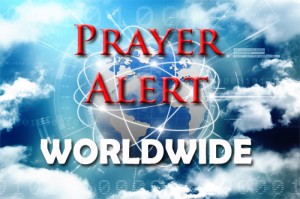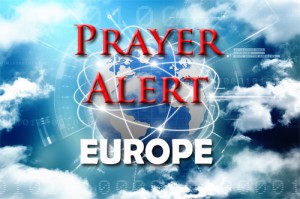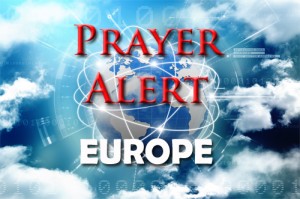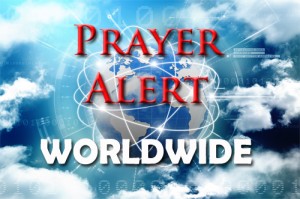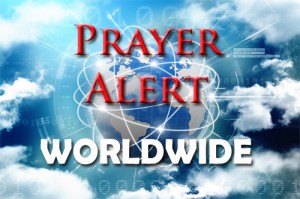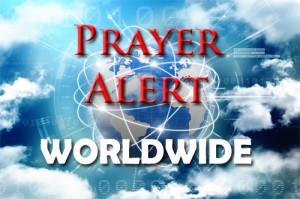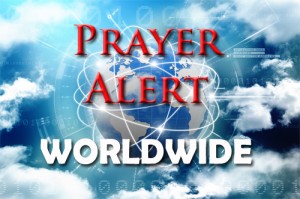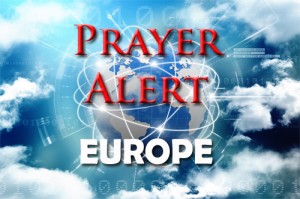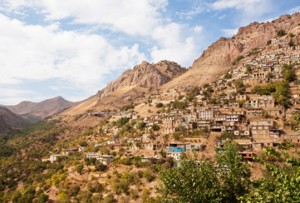Displaying items by tag: Turkey
Syria: Turkish action in Afrin
Turkey’s flag flew over Afrin while Turkish-led factions, including Salafi jihadi groups, were plundering the city. Images emerging from Afrin resembled a medieval army taking booty. Experts, observers and international anti-IS coalition officials expected Syrian Kurdish fighters to put up a stronger resistance to protect the land, believing Turkey’s victory would come at a greater cost. Since these fighters handed over Afrin without engaging in urban warfare, most people believe the Turkish intervention is a prelude to a wider offensive against other cities under the control of the Kurdish forces. On 20 March Erdogan vowed to expand Turkey's Syria campaign to the Kurdish-held areas up to the Iraqi border. But Syria’s government heavily criticised Turkey's ‘occupation’ of Afrin and demanded that Turkish forces withdraw.
Turkey and the Greek islands
Turkey’s ruling Justice and Development Party and the opposing Republican People's Party both agree that the Greek islands are Turkish territory and must be reconquered. Both parties in the past have openly threatened to invade the Aegean. In 2016 President Erdogan said, ‘Turkey has given away islands, a stone’s throw away, that were ours before’. To fulfill his mission of leaving a legacy surpassing that of all other Turkish leaders, Erdogan has specific goals: to create a nationalist cohesion, modify Turkish borders, and update the Lausanne Treaty by 2023. Also Turkish propagandists have distorted facts to present Greece as the aggressor. Ministry of defence officials say, ‘Greece has converted the islands it has occupied into military arsenals and outposts that Greece will use in future intervention against Turkey.’ Observers believe that since Turkey invaded Cyprus in 1974, the West should not take its current threats against Greece lightly. Pray for positive discussions over territorial waters, delimitations of airspace, and exclusive economic zones.
Turkey’s Armenian Apostolic patriarch
The state has again blocked the long-delayed election of a new Armenian Apostolic patriarch, arguing that an election would be contrary to the community's traditions. Yet freedom of religion protects the right of religious communities to elect leaders in accordance with their traditions as they interpret them. The Istanbul governorship (a state institution under the Interior Ministry responsible for state administration in Istanbul province, where the patriarchate is based) argues that a new leader cannot be elected because the previous patriarch, unable to fulfil his functions since 2008 because of illness, is still living.
Turkish offensive on Afrin
On 20 January, Turkey launched an air and ground offensive against the Kurdish Syrian Democratic Forces in Afrin, on the Syrian/Turkish border. The action has revealed a well-defined split in the Syrian public between supporters and opponents of the operation of daily bombing by troops, tanks, artillery and war planes. Some Syrians support this action as it could provide an opportunity for them to return home; others fear Turkey’s intentions are far from noble. Hundreds have died. 400,000 Kurds are sheltering in Afrin, and no one can enter or leave the area. Many believers are sheltering in churches. See also
Turkey: doctors arrested for supporting ‘terrorists’
Police arrested senior members of the Turkish Medical Association, and President Erdogan branded them ‘terrorist lovers’. The association, which represents 80,000 doctors, publicly voiced opposition to the offensive against Syrian Kurdish militia, warning: ‘Every clash, every war, causes physical, psychological, social and environmental health problems, and human tragedy.’ After publishing their statement they were inundated with threats of violence via telephone, email and social media. The New York-based Physicians for Human Rights group condemned the intimidation campaign. ‘It is a bleak commentary on the state of affairs in Turkey that a group of doctors can’t make a peaceful statement without being targeted with physical threats and condemned by the head of state’, said Dr Homer Venters. ‘Medical professionals must have the freedom to call out threats to public health without fear of retribution.’
Syria/US/Turkey: fragile relationships
The USA is working with the Kurdish-led Syrian Democratic Forces (SDF) to create a border force, potentially 30,000 fighters, along the Turkey/Iraq borders and along the Syrian side of the Euphrates. Since 2014 it has led the coalition of nations using air strikes and specialist troops to fight IS across Syria and Iraq. IS has now lost most of that territory. For much of the war, the US and Turkey worked together against the Assad government. But this decision to back Kurdish fighters has enraged Ankara, and Syria denounced any new border force as an assault on its sovereignty, adding that Syrians joining the force would be ‘traitors’. Turkey vowed to ‘drown’ Kurdish border security forces in bullets, and Erdogan accused America of forming a ‘terrorist’ force on Turkey’s border. The fragile state of relations between the nations deteriorates.
Syria: peace-making in Russia
As 2017 closes, Syrian warring parties are moving towards reconciliation - but America is not among them. IS is all but defeated: the Syrian army and its allies are closing in on the few remaining pockets occupied by other extremists. Donald Trump may have hinted at changes, but he’s treading the same path as Obama on Syria. Determined to oust Syria’s President Assad as a means to weaken Iran and re-establish American regional control, Barack Obama gambled on two pathways to this goal: 1) military strategy to snatch control over Syria from the regime; 2) UN/American mediation in Geneva to remove Assad. Washington lost its military venture when the Russian air force entered the battle; next it resuscitated a limp Geneva peace process for political settlement without Assad. It failed. But a fresh process is being established in Sochi, not Geneva, with Iranians, Russians and Turks carving out ceasefire zones and negotiating peace.
EU / Turkey relationships
Turkey-EU ties are currently marked by mutual resentments and appear to be going nowhere. In a sign of the times, Brussels is withholding 175 million euros in pre-accession funds for Turkey, which on paper remains a candidate for EU membership. Ankara says it doesn’t need EU money or membership, but it is developing ties with individual EU members, which seems to be a search for another kind of relationship with Europe. French president Emmanuel Macron, who has emerged as Erdogan’s principal European speaker, said Turkey is a partner in many crises Europe faces, notably the immigration challenge and the terrorist threat. Countries such as Germany and France are angry about EU citizens arrested in Turkey on what they say are trumped-up charges linking them to the Kurdistan Workers Party (PKK) or the so-called Fethullah Gulen Terror Organisation (FETO). They are accusing Ankara of holding these people hostage.
Shakings on the Borders of Iraqi Kurdistan
As we write, reports are still coming in of a large earthquake (7.3 on the Richter scale) which struck during the night on the border between Iraqi Kurdistan and Iran. The quake, centered just southwest of the Kurdish town of Halabja, was felt throughout the Middle East, including Israel. News reports are predicting a large number of casualties, especially across the border in the heavily populated Iranian province of Kermanshah. This comes in the wake of other shakings which have been afflicting the Kurds in the region during the past few months.
The Kurds are an ancient people of Indo-European race, thought to be descended from the Biblical Medes. For thousands of years they have occupied an area centered in a crescent of land arching from eastern Turkey, around northern Syria, northeastern Iraq and northwestern Iran. An oft-persecuted race, they are the largest people group not to have held, for over 2000 years, personal sovereignty over the lands in which they have lived.
And they are the one large people-group in this part of the world who have a long history of friendliness towards the Jews. This dates back to the conquest of the Northern Kingdom of Israel by the Assyrians in 722 BC, when Hebrew captives were dispersed as far away as “the cities of the Medes” (II Kings 17:6). Others were added following the Captivity of the Southern Kingdom by Babylon a century later. In the early 1950’s, most of the Jews in Iraq immigrated to the newly established nation of Israel; but warm relations have continued between these two peoples. During the 1980’s, the Iraqi government under Sadaam Hussein sought to exterminate the Kurds. In fact, on March 16, 1988, Hussein ordered a poison gas attack, releasing mustard gas and sarin on the Kurds living in Halabja (the epicenter of last night’s earthquake), killing more than 5,000 of them. At the end of the First Gulf War, the United States established a safe-zone in northeastern Iraq, to protect the Kurds from reprisals by the Iraqis. Since that time, with the death of Hussein following the Second Gulf War the region has flourished. Erbil the capital of this now “autonimous zone”, has become a modern city. The dream of the Kurds there to eventually become an independent nation has been seen as well on the way to reality.
They hold an ancient reputation for being a warlike people. In 2014, as ISIS began spreading its “Caliphate” through northwestern Iraq and headed behind retreating Iraqi soldiers towards Baghdad, it was the Kurds who stood firm along a 1000 kilometre front. And two years later it was their Peshmerga soldiers who were the vanguard for the US and Iraqi forces in taking back key areas, such as Mosul which had fallen to the Caliphate. Late last September, things took a different turn. The Kurdish leadership decided the time had come to hold a non-binding referendum to see if the Kurdish people of northern Iraq were ready for independence. Suddenly, the Kurds’ friends—including those with whom they had been battling a common enemy—began to distance themselves.
Dark threats came from Turkey and the Iraqi government about holding the referendum. The United States and other western nations strongly urged them to put it off. In fact, only Israel encouraged them to go forward with it. The referendum was overwhelmingly passed by the joyous Kurds. Unlike what happened in Israel in 1948, this was not a declaration of independence, just a vote towards a direction. Yet, just as happened with Israel in that year, enemies began to mobilize.
Turkey’s Erdogan began moving troops towards the northern border; issuing a sneering taunt, “See, no other nation is recognizing your referendum, only Israel. Will Israel save you?” The Iraqi government closed the Erbil airport, and mobilized troops—Shia militias led by Iranian Revolutionary Guards and backed up by Iraq’s 9th Armored Division.
In a short time, the Kurds had been driven out of the areas they had taken and held during the war with ISIS, including the oil-rich city of Kirkuk. At present this little nation (which could not become a nation) is in disarray—her dreams of independence once again dashed, feeling abandoned by her friends for and with whom she fought. For the moment there is a shaky truce…but for how long? And who will stand with her, if the circling armies began to again advance?
Presently Iraq and Iran, Syria and Turkey (abetted by Russia) appear to be resuming their old dream of a ‘crescent’ of Islamic power north of Israel. Saudi Arabia is aware of this, and is seeking to strengthen its alliance with the US, and perhaps even (in a hidden way) with Israel as it sees its ancient enemy Iran spreading westward. Wars and rumours of wars are roiling over the Middle East—and in the center are the Kurds.
Salvation and blessing are coming to Kurdistan. And an “independence” much deeper even than that which they have so desperately sought. Two years ago, the Lord released and repeatedly confirmed a prophetic word over this people—Springtime for the Kurds! There is a redemption at work in Kurdistan! God has promised that all nations (Genesis 22:18) will find blessing in the seed of Abraham; and that there will be a special blessing for all who show blessing to that seed! And Kurdistan, a land not under a curse for despising Israel, lies right in the middle of the region covered by the ancient kingdom of Assyria—a people and area which God promised would one day be called “the work of My hands”—bound together with Israel “My inheritance”—and Egypt “My people.” (Isaiah 19:24-25).
In recent years, seeds for the awakening of that holy blessing have been sown into Iraqi Kurdistan, and they are beginning to sprout. Shortly after the end of the First Gulf War, the Lord sent believers into land—aiding the decimated Kurds, digging wells which had been destroyed, helping with education, and in the process sharing the life-giving truth of the Good News of Issa—Yeshua—Jesus.
Perhaps it is because of the ancient teaching about a coming Messiah by the Jews who had lived among them for so long—but the veneer of Islam forcibly imposed upon the Kurds 1300 years ago seems much thinner today than that in other Islamic countries. They have begun coming to faith in the Saviour and being filled with the Spirit much more rapidly than has been the case in other Islamic societies.
Today there are Kurdish evangelists working among their own people; there are Kurdish songs of praise and worship being sung. It is a small light—but it has kept shining and is growing brighter. And as it comes into flame, it will shine out into the darkness of the surrounding nations.
We believe that the Kurds will have a crucial and holy role in the salvation of the Islamic nations surrounding them! Meanwhile, believers from the nations continue coming into the land to serve and to pray. Today there are is a strong House of Worship in Erbil, with visitors from abroad (including Jerusalem) visiting it often.
Borders
The present international turbulence is related to the borders of Kurdistan—its western and southern borders with Iraq, its northern borders with Syria and Turkey. The shakings last night were along the north-eastern border with Iran. It is the God of Heaven who “sets up the boundaries for peoples” (Deuteronomy 32:8-9). It is He who “makes peace in the borders of Jerusalem” (Psalm 147:14)—and in the borders of those who love her. We are reminded of several years ago, when, at the height of the advance of ISIS across Syria and north-western Iraq, our friend Rick Ridings received a vision regarding God’s “Re-drawing” of the maps of the region. Within that vision was the following regarding the Kurds—part of which has been fulfilled, and part of which we see continuing to be:
In the vision I received, I saw these “border angels” going forth in a focused way to the Kurdish autonomous area of present-day Iraq. They started pulling on and protecting borders. I saw an altar of prayer and worship to the Lord in the heart of this Kurdish region, where more and more stones were being added to it, causing the altar to be raised up higher and higher.
Next, I saw bulldozers and cranes carving a deep pool in this Kurdish region. I felt this was a reservoir being created to hold waters of the Holy Spirit…As things went from worse to worse in the ISIS-controlled areas of present-day Iraq and Syria, I saw in the vision that the Kurdish region was protected and that the rains of the Holy Spirit began to fall upon their area and started filling their “pool” with the water of Life.
PLEASE PRAY:
- That God’s blessing of life, prosperity and hope would be renewed upon the Kurds in Northern Iraq; that He sustain them during a time of disappointment and loss; that the Father’s Kingdom Come! there.
- That God protect their borders, and at the right time establish them as a nation. Pray that He raise the Kurdish people up to the redemptive purposes He has reserved for them to walk in in the last days!
- That God raise up leadership there which will be led in His purposes and bring the people into unity. There are ancient party-divisions, which satan uses to awaken division whenever they find themselves no longer facing a common enemy.
- That Israel remain a strong friend of her only ally in that part of the world—among whom she herself was a sojourner for so many centuries. That this friendship will be strengthened in faithfulness, protection and provision. That our leaders will know how to act righteously and decisively in regard to Kurdistan during the coming days.
- That God remember the many other oppressed peoples whom the Kurds protect and succour within their midst such as the Yazidis, the Assyrian Christians.
- That President Trump become aware of the crucial importance of his nation maintaining faith—and protection with the Kurds in northern Iraq. That other nations who stand with Israel will also stand with the Kurds.
- That the seeds of Truth planted for centuries, and during the past few decades, come to fruition—that Believers from Israel and Egypt will be used of God to form a spiritual bond between their countries and Kurdistan in Assyria. Pray blessing, refreshing, insight and power over the House of Prayer in Irbil, Kurdistan.
- That the Kurdish people throughout the world would be drawn to the light of Salvation, and come as a people into their heritage.
Martin and Norma Sarvis
Turkey offers to free pastor
Turkey’s president has now confirmed publicly that an American pastor jailed for the past twelve months is being held as a political hostage. In a speech at his presidential palace, Recep Tayyip Erdoğan openly called on the United States to exchange pastor Andrew Brunson for Muslim cleric Fethullah Gülen, a Turkish citizen living in exile in the US since 1999 who is accused of masterminding last year’s failed coup via his international network of followers.
